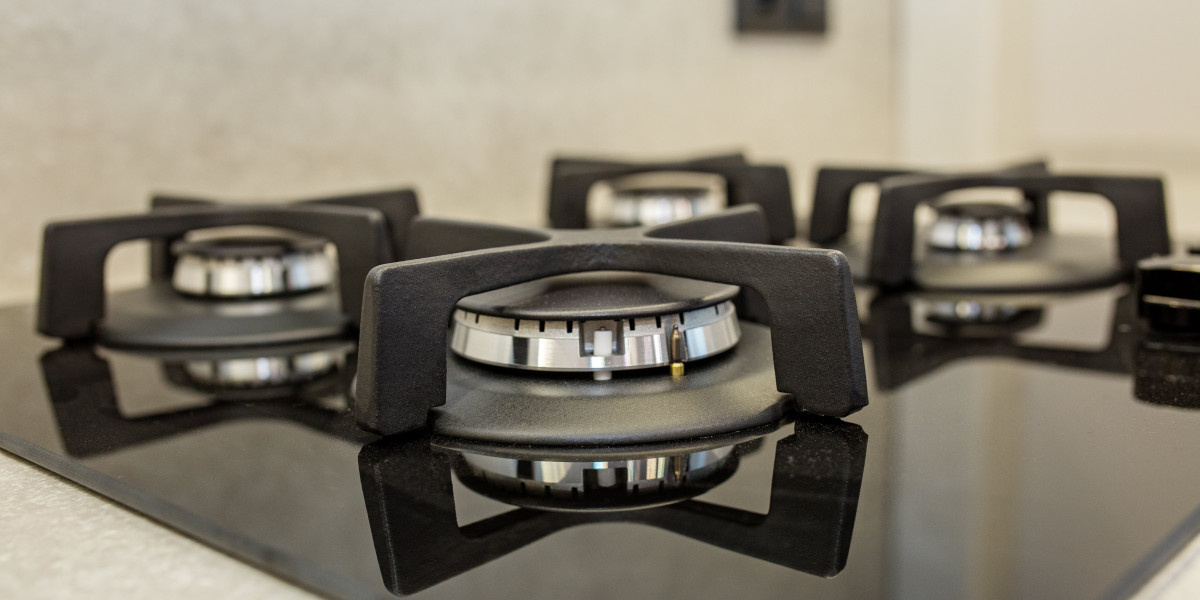The Inbuilt Cooker: A Comprehensive Guide to Modern Culinary Convenience
On the planet of modern kitchen areas, functionality and design go hand in hand. The inbuilt cooker is an essential device that reflects this pattern, bringing both ease of use and visual interest cooking areas. Unlike traditional standalone cookers, inbuilt cookers are integrated straight into cabinets, using a smooth look that enhances the total kitchen style. This short article checks out the different types, advantages, factors to consider, and upkeep ideas for inbuilt cookers, together with responses to often asked concerns.
Types of Inbuilt Cookers
Inbuilt cookers come in different styles and configurations to fit numerous cooking needs and kitchen designs. The following table sums up the primary types of inbuilt cookers offered in the market:

| Type | Description | Pros | Cons |
|---|---|---|---|
| Built-in Ovens | Integrated ovens installed into kitchen cabinetry | Space-saving, streamlined design, different sizes | Setup intricacy, expense |
| Induction Hobs | Cooktops that use electro-magnetic energy to cook | Quick heating, easy to tidy | Needs suitable pots and pans |
| Gas Hobs | Cooktops using gas for heat | Exact temperature control | Needs gas line installation |
| Combination Ovens | Ovens that combine conventional and microwave functions | Versatile cooking alternatives | Might be more pricey |
| Steam Ovens | Use steam convection to prepare food | Keeps wetness and taste | Minimal cooking capacity |
Benefits of Inbuilt Cookers
Inbuilt cookers provide a myriad of benefits that make them popular choices for modern cooking areas. These include:
Space Efficiency: Inbuilt cookers are developed to fit comfortably into kitchen cabinetry, making efficient usage of kitchen space and enabling a more streamlined appearance.
Enhanced Aesthetics: Their smooth integration adds to a sleek and modern kitchen design, eliminating clutter from counter tops.
Improved Functionality: Many inbuilt cookers featured innovative features like smart innovation, which permits users to manage cooking settings by means of smartphone apps.
Range of Options: Consumers can pick from a range of designs and fuel types, consisting of electric, gas, and even solar options, offering flexibility to satisfy individual cooking choices.
Increased Safety: Built-in units typically come with safety features such as car shut-off, making them more secure than conventional cookers.
Considerations When Choosing an Inbuilt Cooker
While the benefits of inbuilt cookers are clear, potential buyers must think about several elements before buying:
Space and Measurements: Ensure your kitchen has sufficient space for the inbuilt cooker and consider the dimensions of the unit relative to your cabinetry.
Fuel Type: Decide in between electric, gas, or other combustion types based on your cooking requirements and kitchen setup.
Cooking Preferences: Assess the kinds of dishes you frequently prepare and select a cooker that provides the functions and functions you require.
Budget plan: Inbuilt cookers can differ substantially in rate. It's necessary to set a spending plan that thinks about both the purchase cost and prospective installation costs.
Installation Requirements: Some inbuilt cookers may require expert setup, particularly gas designs. Make certain to factor this into your total job costs.
Maintenance Tips
To make sure the durability and efficiency of an inbuilt cooker, routine maintenance is important. Here are some key tips:
Regular Cleaning: Clean the surface areas and interiors according to the producer's directions. Avoid abrasive cleaners that might scratch or harm finishes.
Check Seals and Gaskets: Periodically inspect door seals and gaskets for wear and tear, as this impacts cooking performance and energy usage.
Adjust Temperature Settings: Test the temperature settings periodically to guarantee precise cooking efficiency.
Expert Servicing: Schedule regular expert inspections, particularly for gas models to ensure safety and proper performance.
Often Asked Questions
1. Are inbuilt cookers more expensive than standalone designs?
Inbuilt cookers can be more costly due to their innovative features and built-in design, but they likewise offer enhanced visual appeals and performance, which may justify the financial investment.
2. Can I set up an inbuilt cooker myself?
While some designs have user-friendly plug-in choices, expert installation is generally advised, particularly for built-in gas cookers that require appropriate ventilation and security checks.
3. What are the benefits of induction hobs compared to gas hobs?
Induction hobs heat up quicker, are normally safer given that they do not produce an open flame, and are much easier to clean up due to the flat surface. Nevertheless, they require suitable cookware and might have greater upfront expenses.
4. How can I optimize the effectiveness of my inbuilt cooker?
Utilize the suitable cooking settings for various kinds of food, keep the exterior and interior clean, and ensure appropriate sealing and insulation to enhance efficiency and reduce energy consumption.
5. What functions should I search for in an inbuilt oven?
Consider features such as self-cleaning functions, programmable settings, temperature probes, and smart innovation abilities for improved convenience.
Inbuilt cookers represent a blend of performance and style that empowers home cooks to explore their culinary passions with ease and efficiency. As they come in numerous types to suit varied cooking designs and kitchen designs, comprehending their advantages and factors to consider permits customers to make informed options about this vital kitchen home appliance. With proper setup and maintenance, an inbuilt cooker can become an important possession in any modern kitchen, making cooking an enjoyable and worry-free experience.







